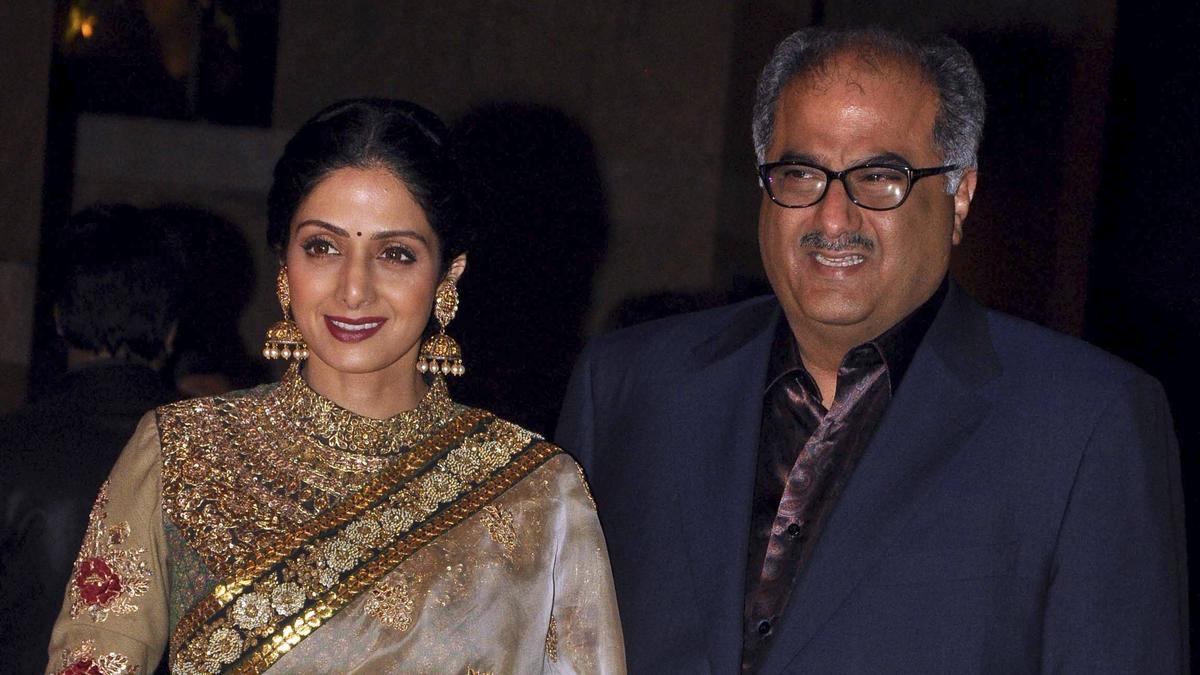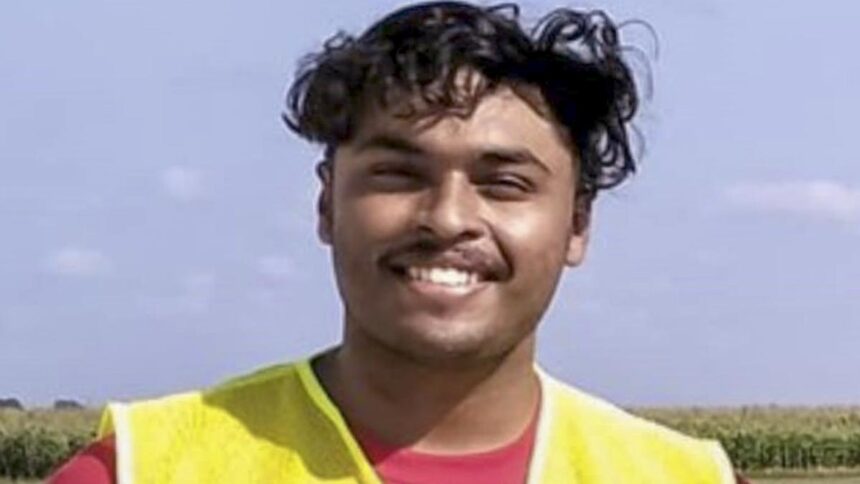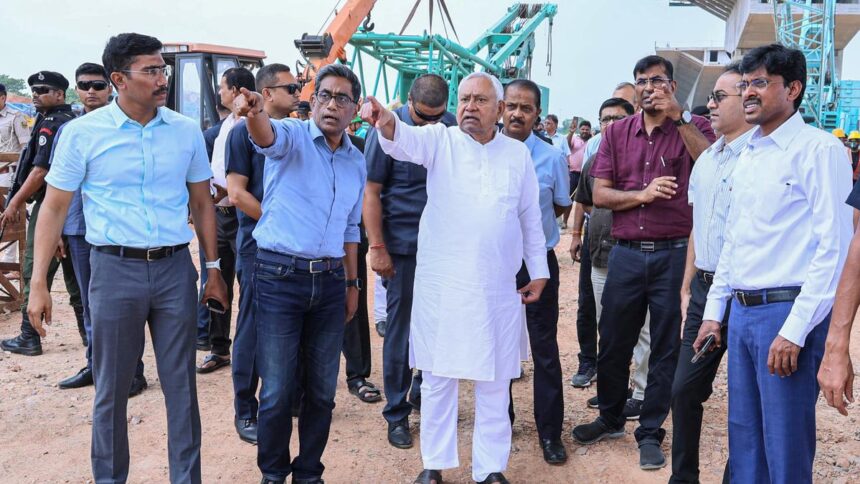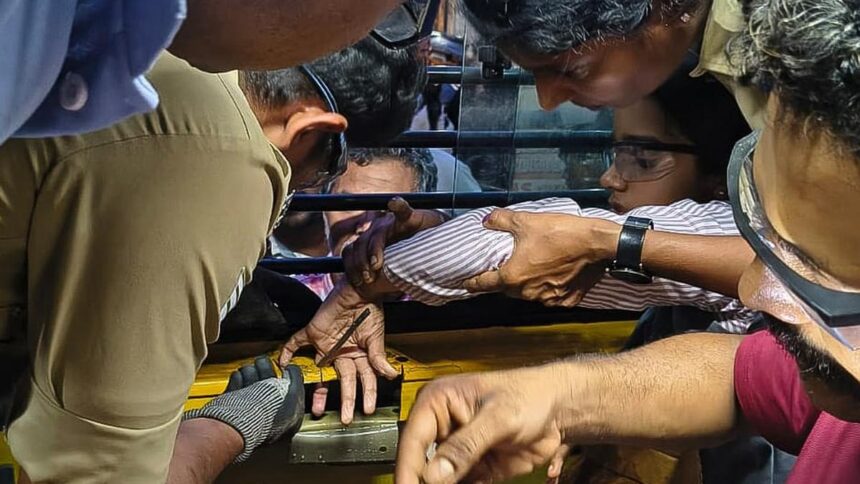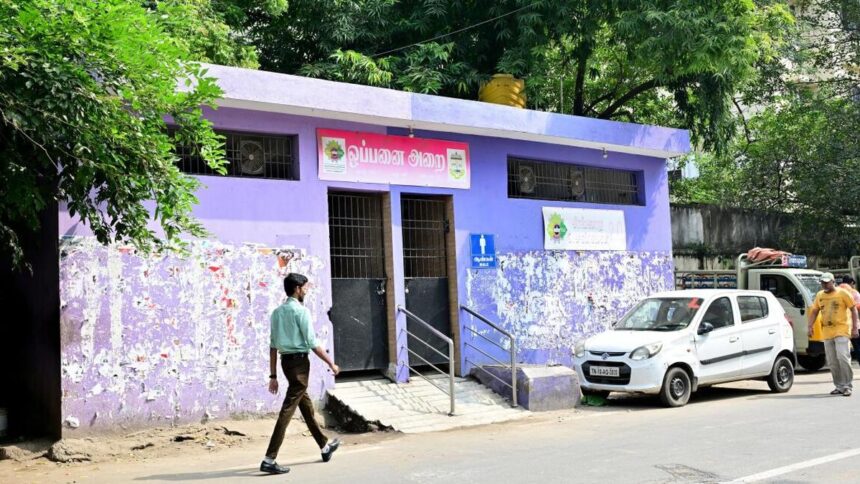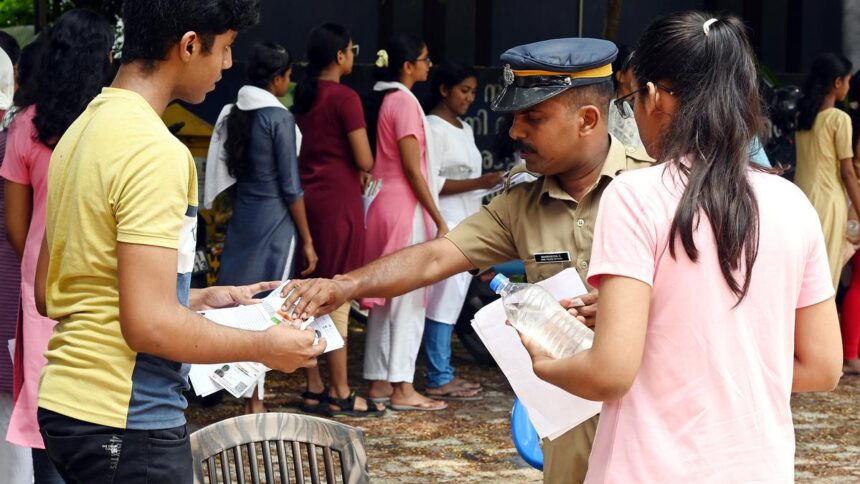
Sridevi and Boney Kapoor. File
| Photo Credit: AFP
Renowned film producer Boney Kapoor has approached the Madras High Court alleging that three individuals have been unlawfully claiming right over an immovable property purchased by his wife and veteran actor A. Sridevi (since dead) at East Coast Road (ECR) in Chennai in 1988.
Justice N. Anand Venkatesh on Monday (August 25, 2025) directed the Tambaram Taluk Tahsildar to take a decision within four weeks on a representation made by the film producer to cancel a “fraudulent” legal heirship certificate that had been granted in favour of the three indviduals.
The orders were passed while disposing of a writ petition filed by the producer seeking a direction to the Chengalpattu Collector and Tambaram Taluk Tahsildar to dispose of a representation made by him on April 22, 2025, for cancelling the legal heirship certificate.
Explaining the background of the case, Mr. Kapoor told the court that his wife had purchased the property on April 19, 1988, and since then, she and her family members had been in absolute possession and enjoyment of the property now being used as a farm house.
The petitioner also told the court that the land originally belonged to a person named M.C. Sambanda Mudaliar, who had three sons and two daughters. The family members had entered into a mutual arrangement on February 14, 1960, with respect to the division of the property between them.
It was based on this agreement that Sridevi had purchased the property and duly registered the sale deed. However, suddenly, three individuals began contending that they too had an undivided shared over the property by claiming to be the second wife and two children of one of the three sons of Mr. Mudaliar.
Stating that the claimants had also obtained a legal heirship certificate from the Tambaram Tahsildar in 2005, the petitioner questioned the jurisdiction of the revenue official to issue such a certificate when the family of the original land owner had, all along, resided in Mylapore and not in Tambaram.
Further, pointing out that the second wife claims to have got married on February 5, 1975, the petitioner said, it could not be considered a legal marriage since the first wife had died only on June 24, 1999. Therefore, the three individuals could not be classified either as Class-I or Class-II legal heirs under the Hindu Succession Act, he said.
Complaining that the trio had been causing a lot of trouble by instituting multiple civil proceedings and approaching the revenue authorities to stake claim over the property on the basis of the “fraudulent” legal heirship certificate, Mr. Kapoor had urged the officials to cancel the certificate at the earliest.
Published – August 25, 2025 06:02 pm IST






